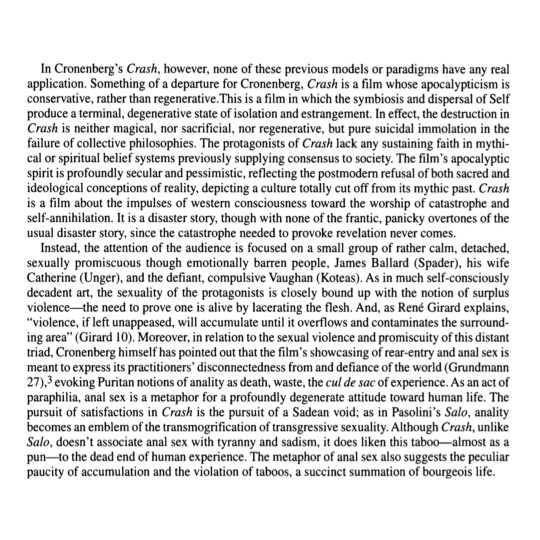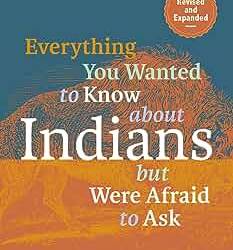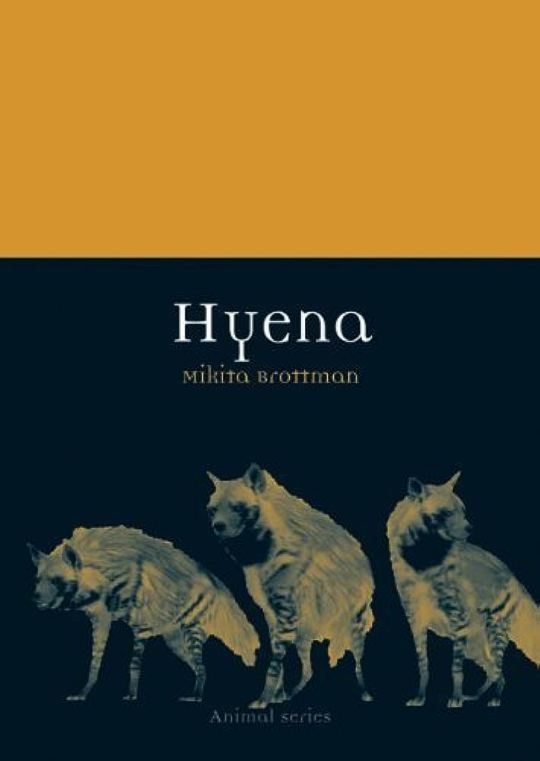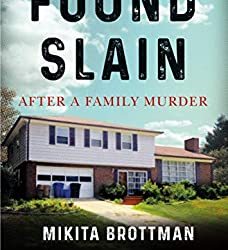#Brottman
Text

Guilty Creatures: Sex, God, and Murder in Tallahassee, Florida
By Mikita Brottman.
2 notes
·
View notes
Text

#arc review#arc reader#arc reviewer#book review#book reviewer#book blog#book blogger#book influencer#netgalley#atria books#one signal publishers#coming soon#nonfiction#true crime#mikita brottman#guilty creatures#bookworm#booksbooksbooks#books books books#bookish
0 notes
Text

Mondo Horror: Carnivalizing the Taboo, Mikita Brottman
0 notes
Text
@konmari-dogs's post reminded me, I read a lot of dog books this year! My biggest tip for reading more is put a bunch of books on your phone and just dip into them when you can. I think I originally got this tip from Milly, but it really works. If you are getting sick of one or need a break, you can easily flit to another. You can get a page or two while waiting for appointments or at a cafe or something. Really easy to read a lot more.
Anyway, I read a lot of crap this year but also some gems.
Hit list:
The Culture Clash by Jean Donaldson. I finally read this classic. I skimmed most of the training stuff because it is a bit outdated now, but I really liked the allegorical parts, the actual bits that are why it is titled the way it is. That stuff is still really relevant today.
Dog is Love by Clive D.L. Wynne. I enjoyed this. It followed the story of how Wynne convinced himself that dogs do love us, through various scientific disciplines. I also think this guy is a compelling speaker, if a little pompous.
Wonderdog by Jules Howard. Loved this one, excellent overview of dog science throughout history. Really worth the read.
The Secret History of Kindness by Melissa Holbrook Pierson. My favourite read this year, an incredibly moving overview of the history of training dogs.
In Defence of Dogs by John Bradshaw. I started this one more than a year ago and finished it this year. It was pretty good, but a little outdated on the science now. Still worth a read.
The Great Grisby by Mikita Brottman. I enjoyed this, it was about various dogs in literature or real dogs owned by famous people, mostly Victorians. It was a fun read. The focus won't be for everyone.
How the Dog Became the Dog: From Wolves to Our Best Friends by Mark Derr. I started reading this like 5 years ago. I really enjoyed the first half then dropped off it. I finished it this year and I am glad, but there wasn't as much good stuff in the second half. Still, I reference it a lot and I love the way he writes about early dogs.
Shit list:
Living with Border Collies by Barbara Sykes. This one is a mess. Very few useful ideas, mostly just batty nonsense.
Fifteen Dogs by André Alexis. This was the only novel I read this year and it was garbage. Do not recommend.
How Stella Learned to Talk by Christina Hunger. You all know I hated it. I am stunned when people recommend it to others to get into dog buttons. I thought the narrative itself was a steaming pile of garbage and I thought the tips on how to get started with buttons were vague and unhelpful. Cannot understand this fad at all.
The First Domestication by Brandy R. Fogg and Raymond Pierotti. I started this a year or two ago and finished it this year. It was a mess. I appreciated the parts where they ripped into Coppinger, but there were tons of other really questionable bits so I basically think the whole thing is a wash.
Dogs: A Philosophical Guide to Our Best Friends by Mark Alizart. It wasn't terrible, but it was quite strange. I appreciated it sent me down a few rabbit holes though. I tried reading some more philosophical books about dogs but they fall apart as soon as the authors show they know nothing about modern dog science.
Dingoes Don’t Bark by Lionel Hudson. This one also wasn't terrible but it was also kind of nothing. Not a lot of information about dingoes. I think the documentary it pairs with would be more worhtwhile. I think it's from the 70s, maybe 80s.
Still reading:
Level Up Your Dog Training by Natalie Bridger Watson. This is for beginners, but I am enjoying it as another resource for my club.
The Wolf Within by Professor Bryan Sykes. This is good but thick and science heavy, so I know it will take me a long time.
Treat Everyone Like a Dog by Karen London. I am not enjoying this at all. It will inevitably make it onto my shit list one year.
What Dogs Want by Mat Ward. Really loving this very cute and modern take on basic dog care for new owners.
What the Dog Knows: The Science and Wonder of Working Dogs by Cat Warren. I am really loving this so far. It's my kind of book, a mix of dog science and memoir.
Our Oldest Companions by Pat Shipman. I am not that taken in by Shipman. I've read one of her other books and I don't find her particularly compelling. I am finding Sykes more interesting than this one.
Aesop's Animals: The Science Behind the Fables by Jo Wimpenny. This one is pretty good, not sure if I will finish it though because I read the dog and wolf chapters already.
Positive Herding 101 by Barbara Buchmayer. I am enjoying this. I got through all the beginning stuff and have finally reached the chapters that will talk about herding training.
Enrichment Games for High Energy Dogs by Barbara Buchmayer. This is good enough that it made me buy her other book. I haven't finished it yet though.
51 notes
·
View notes
Text

Excerpt from 'The End of the Road David Cronenberg's "Crash" and the Fading of the West' by Mikita Brottman and Christopher Sharrett
29 notes
·
View notes
Text
Thanks for the tag @butcherlarry !
rules: answer and tag nine people you want to get to know better and catch up with.
favorite color: Gold
last song: uhhh... I don't really listen to listen so like whatever was playing in the background.
currently reading:
Guilty Creatures: Sex, God, and Murder in Tallahassee, Florida by Mikita Brottman
The God of the Woods by Liz Moore
Sword Catcher by Cassandra Clare
Diavola by Jennifer Thorne
Lady Macbeth by Ava Reid
currently watching: I'm sad because I've already finished the Caped Crusader and the House of the Dragon. I'm currently getting through Del Toro's Cabinet of Curiosities.
currently craving: Chocolate Chip Cookie Dough. I might make some tonight. Also I really wanna read a book that absolutely crushes be. If you have book reccs let me know.
coffee or tea: Usually coffee, but I do love a London Fog.
hobby to try: I'm currently learning how to throw pottery on a wheel and I've gotten a lot better! I have many handmade bowls, cups and planters.
current au: Oh god, if you know me, you know that I'm absolutely filled to the brim with AUs. In terms of the things most immediately being written. I've finished the next chapter of Mers and it's currently being art-ed and I'm 6k words into a sequel for "The Coming of the Season" which set in omegaverse and features a teen mom Bruce. I'm having an absolute blast with it. It's quickly become one of my favourite things to write. Oh I'm also writing an AI horror story for October.
tagging: @jube514 , @spookyprime, @polemisti, @feyburner , @vinelark, @timdrakeismypatronus, @sunflowersandink, @sun-moon-stars-jedi, @minnow-doodle-doo and anyone else who wants to participate (no pressure though)!
thanks again for the ask!
3 notes
·
View notes
Text
2023 Reading Log, pt 8

36. Everything You Wanted to Know About Indians but Were Afraid to Ask, Revised and Expanded Edition by Anton Truer. This book is written by an Ojibwe professor (as in, both that he’s Ojibwe and teaches Ojibwe language), and is aimed primarily at a novice, non-Native audience. Truer’s whole career is based on expanding education of Native languages, preserving endangered languages, and revitalizing tribal culture while simultaneously building bridges with mainstream American culture. It does a very good job of summarizing issues about land rights, sovereignty, history and civil rights about Native Americans. It’s written in an engaging style, and is doing good anti-racism work, I think. But it has issues, and the big one is the Culture chapter. The Culture chapter is written basically assuming that all Indian Country (his words) works the way that Ojibwe tribes and their neighbors do, with minor variations. Obviously, this is both an introductory book and one that needs to summarize an immensely diverse group of people, but I think the author does himself no favors by saying things like all Native American religions are monotheistic. So definitely take the cultural material with a grain of salt.

37. Hyena by Mikita Brottman. This book is part of the Animal series by Reaktion Books, little chapbook sized books about the natural and cultural history of some particular animal. This book focuses much more on the cultural than natural history, talking about how hyenas have been reviled by many cultures (including modern pop culture) and consistently confused with each other by early scientists. That bit, about the entangling of different hyenas, is the part that was the most novel and interesting to me, as I quite like the history of science. The book is well illustrated, with a variety of woodcuts and illustrations from vintage European books, as well as artifacts from people who live among hyenas, and photos of hyenas wild, in zoos and tamed by people. I did find it a weird oversight that, in a chapter that includes Magic the Gathering cards of hyenas and hyenas in World of Warcraft, that it didn’t talk about gnolls or anthropomorphic hyenas in fantasy fiction.

38. The Monster Overhaul by Skerples. This book is a monster book for fantasy RPGs, written for a generic OSR style game. It’s different in that it focuses on a relatively small number of monsters for its size, instead doubling down on plot hooks, descriptions and ways to otherwise bring creatures to life at the table. The gimmick? Random tables for everything, even the table of contents. The organization is somewhat intentionally bizarre, but the book is well indexed. It’s also highly readable for a book that is comprised mainly of tables. The Monster Overhaul is thoughtful about its uses for monsters, has clever takes on some D&D staples (like how manticores are all male and are the embodiment of male entitlement and bitterness, or how “brain eaters” are literally addicted to humanoid brains), and is very funny to boot. Highly recommended for anyone interested in fantasy RPGs, regardless of system.

39. Healing with Poisons by Yan Liu. This is an academic text discussing the development of Chinese medicine in the 3rd through 10th centuries. The focus is on du, roughly translated as “potency”, a force ascribed to medicinal ingredients that were generally toxic. The book talks about the philosophy of medicine in medieval China and how that philosophy changed between authors, how the government got more involved in standardizing medical texts, and how regional differences between practices and ingredients influenced that standardization. It also goes into a lot of detail about how various toxic minerals, particularly arsenates and mercury, were used to make “elixirs of life”, and how the fact that these often very clearly killed people was rationalized away for centuries before “internal alchemy” became more popular than “external alchemy”. There’s also a discussion of a royal scandal involving the court during the Sui dynasty being plagued by a cat demon!

40. Geopedia by Marcia Bjornerud. This is the best of the –pedia series I’ve read (sorry, Darren Naish!). It covers bits of geology, with a focus on explaining major earth formations and covering the history of science. As such, there’s a lot that I didn’t know that I learned from this book, especially about some of the also-ran hypotheses that were rejected when plate tectonics was understood to be the driving force behind most earth processes. It’s highly readable and does a very good job of drawing connections between bits of seemingly disparate information to explain how the Earth works. This book is a very good resource for people who know a bit about geology and want to learn more.
#reading log#geology#chinese history#traditional chinese medicine#monster book#hyena#native american
14 notes
·
View notes
Text













David Sterritt, "Thanatos Ex Machina: Godard Caresses the Dead" // Jenny Holzer // Howard Lake, "Jump On In, You're In Safe Hands" // "Law of Holes" Wikipedia // "Negative Energy" Solutions: Hole Theory // Pamela McElwain-Brown, "SS-100-X" // Julio Cortázar, "Bolero" (trans. John Lyons) // Anne Boyer, "What Resembles The Grave But Isn’t" // Mikita Brottman and Christopher Sharrett, "The End of the Road: David Cronenberg's Crash and the Fading of the West" // Anne Carson, Grief Lessons - Four Plays // Mikita Brottman, "Signal 30" // Thursday, "Understanding in a Car Crash" // Kristi Coulter, Nothing Good Can Come From This
11 notes
·
View notes
Text

4 libros de libros
📚84 Charing Cross Road. Helene Hanff
¿Se puede mantener una relación epistolar durante veinte años? Y si los remitentes son un librero londinense y una escritora norteamericana, ¿es posible? Libro sobre esa correspondencia postal excéntrica y llena de encanto. Una pequeña joya que evoca, con infinita delicadeza, el lugar que ocupan en nuestra vida los libros... y las librerías.
📚 Mendel, el de los libros. Stefan Zweig
Trágica historia de un excéntrico librero que pasa sus días sentado siempre a la misma mesa en uno de los muchos cafés de la ciudad de Viena. Con su memoria enciclopédica, el librero judío ruso no sólo es tolerado, sino querido y admirado por el dueño del café Gluck y por la culta clientela que requiere sus servicios. Sin embargo, en 1915 Jakob Mendel es enviado a un campo de concentración, acusado injustamente de colaborar con los enemigos del Imperio austrohúngaro. Un breve y brillante relato sobre la exclusión en la Europa de la primera mitad del siglo XX.
📚 Como una novela. Daniel Pennac
Pennac, profesor de literatura en un instituto, se propone una tarea tan simple como necesaria en nuestros días: que el adolescente pierda el miedo a la lectura, que lea por placer, que se embarque en un libro como en una aventura personal y libremente elegida. Todo ello escrito como un monólogo desenfadado, de una alegría y entusiasmo contagiosos: "En realidad, no es un libro de reflexión sobre la lectura -dice el autor-, sino una tentativa de reconciliación con el libro".
📚 Contra la lectura. Mikita Brottman
* Te dijeron que no podías subrayar ni doblar las páginas de los libros.
* Te dijeron que tenías que leer un clásico del siglo XVIII a los doce años.
* Te dijeron que eso que leías por las noches era basura.
* Te dijeron que nunca podías dejar un libro a medias.
* Te dijeron que los lectores son buenas personas.
* Te dijeron que ya nadie lee como antes.
* Te dijeron que los libros te harían amar la vida.
* Y tú no puedes evitar leer. Pero quizá lo haces boli en mano y en pijama, quizás has conocido a grandes lectores que eran malas personas y quizá tu vida te parece aburrida comparada con tus novelas favoritas. Contra la lectura es un texto apasionado y liberador a favor de los que, a pesar de todo, leen. Y contra los pedantes que dicen que aman los libros, pero en realidad solo consiguen que el mundo aborrezca la lectura.
0 notes
Text
“Even older libraries tend to keep most of their books out of sight, down in the stacks. I’ve always been drawn to the backs, attics, and cellars of buildings—their lofts, basements, and rear staircases, their dark, secret parts. Library stacks are among the most private of public places. Generally located underground, like bunkers or dungeons, some are accessible only by tight stairwells, others by creaky elevators with iron gates. In these dusty rooms, long-neglected volumes of obscurities languish in rusty cages, like dying animals. Call it what you like—revisiting the womb, or anticipating the grave—but I’ve always found windowless rooms very reassuring. There’s something special about being closed in on all sides, especially down in a basement or up in an attic, far from the world outside. When a library’s stacks are off-limits to the public, when you need a special card or pass to go down there, they become a secret place that can only be reached through a crack in the earth’s surface.”
Mikita Brottman, from “The Solitary Vice: Against Reading”, 2008.
308 notes
·
View notes
Text

“People speak sometimes about the "bestial" cruelty of man, but that is terribly unjust and offensive to beasts, no animal could ever be so cruel as a man, so artfully, so artistically cruel.”
—Fyodor Dostoyevsky
#godzilla reads#quotes#animal quotes#fyodor dostoyevsky#fyodor dostoevsky#life quotes#hyena#hyena books#mikita brottman#animal books#striped hyena#spotted hyena#books and animals#book cover#pretty book covers#books#tbr#reading#reads#books and reading#booklr#booklover#booklife#book blog#book blurb#book aesthetic#book addicts#bibliophile#bookish#bookworm
73 notes
·
View notes
Text
REVIEW: Couple Found Slain
REVIEW: Couple Found Slain
Mikita Brottman’s deep dive into this suburban true crime goes beyond the ‘whodunit’, and even the ‘whydunit’ aspect. Instead, she focuses on the aftermath from the point of view of the murderer.
In February 1992 Brian Bechtold killed his parents. He turned himself in to the police, saying he’d been possessed by the Devil when he did it. During the investigation and the lead up to the trial,…

View On WordPress
4 notes
·
View notes
Link
Couple Found Slain: After a Family Murder by Mikita Brottman
https://amzn.to/3ymcA1c
https://bookshop.org/a/17891/9781250757449
#couple found slain: after a family murder (book)#Mikita Brottman#books#book review#murder#mental health
2 notes
·
View notes
Quote
The creepy is a close cousin of the uncanny; both words refer to what Freud, in “The Uncanny” (1919), describes as “all that arouses dread and creeping horror.” Freud makes the case that the feeling is produced when we re-encounter, in an unfamiliar form, something we once knew very well. It’s the uneasy sensation we get when we meet an old friend from childhood who’s changed almost beyond recognition. This may explain why so many creepy stories involve objects and elements drawn from childhood—dolls, clowns, puppets, wind-up toys—that seem to have a life of their own.
“Every Creeping Thing” by Mikita Brottman
49 notes
·
View notes
Text
Couple Found Slain at Macmillan Audio, Henry Holt
Couple Found Slain at Macmillan Audio, Henry Holt
Is there ever an acceptable reason to kill your parents? And, is the insanity plea the best way to defend yourself? Finally, can God really make a difference after the devastation is done and two people are left to rot unattended in their home?
I honestly don’t know.
Couple Found Slain: After a Family Murder by Makita Brottman explores all those questions.
Brottman’s subject is Brian Bechtold,…

View On WordPress
#bill curtis#henry holt publishing#Macmillan Audio#makita brottman#true crime#true crime brian bechtold
1 note
·
View note